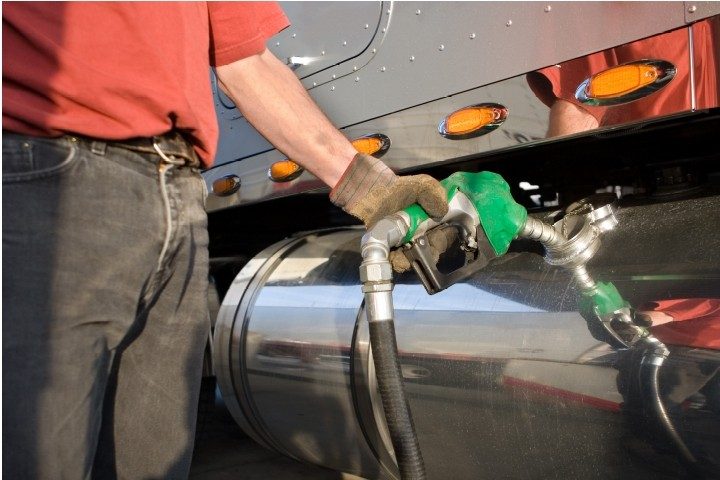
A member of the Oregon House of Representatives has introduced a bill that would ban the sale and use of petroleum-based diesel fuel in some counties by 2024 and statewide by 2028. Democrat Karin Power from Milwaukie, Oregon, introduced House Bill 3305 (HB 3305) on Tuesday, which seeks to prohibit the sale and use of the petroleum-based diesel fuel that runs most semi trucks and trains, requiring it to be replaced with biodiesel or a petrodiesel-biodiesel blend of at least 99-percent biodiesel (B99).
Oregon’s House Republicans called the bill “a declaration of war against the working class.”
Under the provisions outlined in the bill, non-retail dealers would have to stop selling petroleum diesel in Clackamas, Washington, and Multnomah Counties (the Portland metropolitan area) by January 1 of 2024, with the ban on retail dealers in those same counties taking effect a year later. Non-retailers in the rest of the state would be required to halt sales by January 1 of 2027, with the complete statewide ban taking effect on January 1, 2028.
“I’m not sure where to begin with this bill,” said Representative Shelly Boshart Davis (R-Albany) in a statement. “Our entire economy depends on the free flow of freight by both truck and rail, nearly all of which is powered by diesel engines. There is simply no commercially available, cost effective alternative to transporting these goods.”
But it’s not just trains and 18-wheelers that would be affected by a ban on petroleum diesel fuel. Petrodiesel is used in a wide array of equipment including boats, barges, buses, earth movers, and other heavy equipment related to the construction industry.
Banning the sale and use of petrodiesel would have huge economic impacts. For instance, many diesel vehicles are not equipped to run B99 biodiesel (most can only run lower blends, such as B20 or B40), so they would have to be refitted with newer engines. B99 and B100 biodiesels are also more expensive than petrodiesel, and tend to gel at temperatures below 60° F, depending on the biofuel source.
“Of course, the impacts of this bill go well beyond just trucking and freight and would destroy any and every industry that relies on heavy equipment, render tens of thousands of personal vehicles inoperable and put countless Oregonians out of work,” Boshart Davis said.
“Not only was this bill blindsiding, I am also disturbed to see such a blatant attack on working Oregonians,” Boshart Davis concluded.
Other legislators were worried about the unrealistic timelines involved in such a huge transition away from the reliable, readily available fuel.
“There is absolutely no way we can implement this legislation in accordance to these timelines without extreme disruption to Oregonians’ daily lives and the obliteration of our economy as we know it,” said Representative Vickie Breese-Iverson (R-Prineville). “The super majority has put agenda over people and our economy.”
Oregon’s legislature skews heavily Democrat. The state’s governor, Kate Brown, is a far-left Democrat who famously traded barbs with former president Donald Trump over Trump’s offer to send in federal aid during the ongoing unrest in Portland in 2020. Of 30 seats in the State Senate, Democrats control 18. In the House, Democrats control 37 of 60 seats.
Power, an environmental extremist, didn’t see a problem with the bill, tweeting, in response to the House GOP’s statement, “I don’t understand this press release; we sent the language to folks in advance and asked for collaboration and feedback. This policy replaces one type of diesel fuel with other types. It’s spearheaded by a major trucking company that has found significant cost savings.” She’s technically right in that it doesn’t completely ban diesel fuel, but it would not be easy or cost-effective for many operators of diesel vehicles to switch to such concentrated biodiesel blends as required by the bill.
Boshart Davis answered that the language wasn’t sent all that much “in advance” as Power claims. “I don’t understand someone [who] thinks seeing the language at 4:40pm on a Friday constitutes any advance. I/others saw the language the week before it dropped, two months into what can only be classified as an unprecedented session. Blindsided by the bill is accurate.”
Power has been at war with petrodiesel since at least 2019, when she led the fight to phase out old diesel truck engines in the Portland area. As a result of her efforts, any diesel truck engine in use in the Portland Metro area will have to be from 1997 or newer. The bill gradually gets rid of older engines until 2029, when all engines must be 2010 models or newer. To those not familiar with diesel engines, this might sound fine. But considering the fact that diesel engines are designed to last much longer than gasoline engines, and that many diesel vehicles have over a million (sometimes several million) miles on them before being retired, replacing perfectly good diesel engines with newer ones compatible with biodiesel would be costly for many smaller operators.
Currently, HB 3305 is waiting for committee assignment. With Democrats completely in charge of Oregon’s legislature and a far-left governor waiting eagerly to sign such a bill, this ban of petrodiesel is a real possibility in Oregon.





